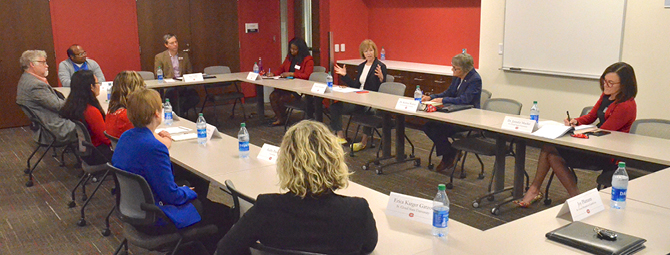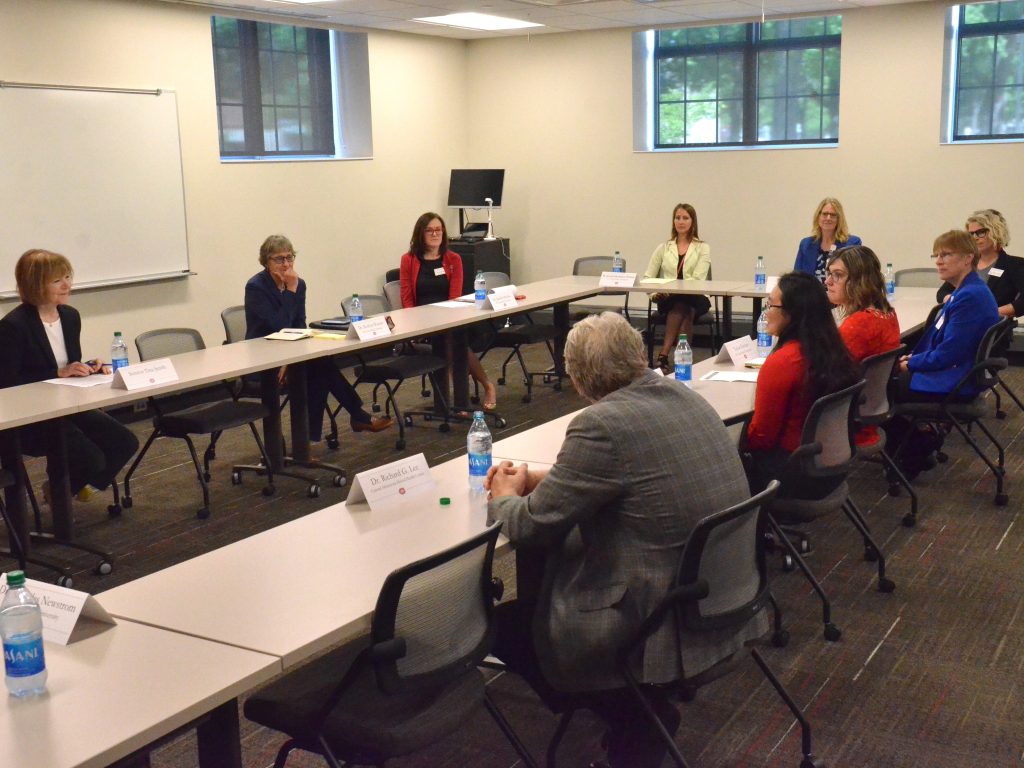St. Cloud State University President Robbyn Wacker, Minnesota Senator Tina Smith, St. Cloud State faculty and students and other community partners participated in a round table discussion in Eastman Hall on June 4 surrounding the topic of mental health and how to explore ways to fill areas of need in mental health services.
Senator Smith led a thoughtful discussion to explore ways to address access and delivery of mental health services. The conversation was related to three bills she is sponsoring: Mental Health Services for Students Act, Mental Health Professionals Workforce Shortage Loan Repayment Act and Medicaid Bump Act of 2021.

“We understand there are real barriers to access to mental healthcare and there are certainly barriers around access,” Smith said to open the discussion. “There is a shortage of providers and there is a shortage of places where people can receive the care that they need. There is also a barrier with challenges with reimbursement and making sure mental healthcare is treated like healthcare. We still see there is a stigma or discrimination against people who experience mental healthcare challenges and that causes them to be reluctant to seek the care that they need.”

Along with President Wacker, St. Cloud State discussants included master’s student Samantha Yang and graduate student Taylor Fischer; Dean of School of Health and Human Services, Dr. Shonda Craft; Assistant Professor of Marriage and Family Therapy, Dr. Nicholas Newstrom; Director of Counseling and Psychological Services, Dr. Jennifer Rocheleau Dorholt; Assistant Director of SCSU Medical Clinic, Erica Karger-Gatzow; and Dean of College of Education and Learning Design, Dr. Jennifer Mueller. Individuals from both CentraCare Health and Central Minnesota Health Center were also present during the discussion.
During the hour-long round table, panelists highlighted the importance of mental health, how COVID-19 and other factors influence mental health conditions and the resources and services that are still needed to address them.
“Personally, this is one of the reasons I decided to speak out about my own challenges with depression when I was younger,” Smith said. “I came to understand the only way to overcome some of those challenges and that stigma is for people to speak out about their own experience, so it doesn’t seem like something that if it happens to me, that there is something wrong with me. I was so blessed because I was in a place where I could get access to the care that I needed to get better. My mission is to make sure that is the case for as many people as we can possibly make it true for.”



